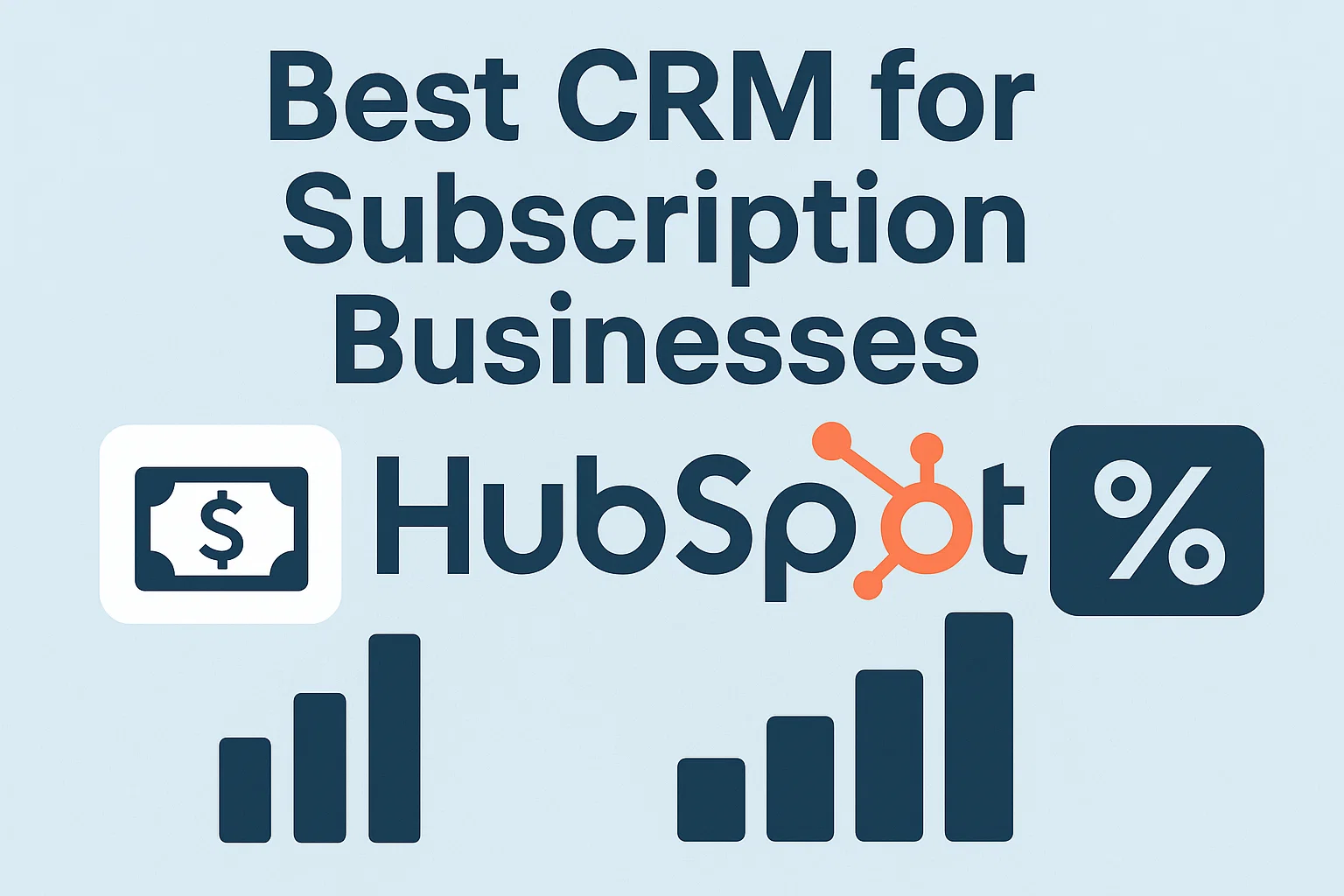Best CRM for Subscription Businesses

Best CRM for Subscription Businesses
Subscription-based businesses, including SaaS companies, e-commerce subscription services, and digital content platforms, face unique challenges such as recurring billing, churn management, and customer retention. A specialized CRM can help manage these processes effectively while driving revenue growth and improving customer satisfaction.
Why Subscription Businesses Need a CRM
Traditional CRMs often focus on one-time sales, but subscription businesses require features that support recurring revenue models. Using a CRM designed for subscriptions allows businesses to:
- Track Recurring Revenue: Monitor subscription plans, renewal dates, and payment cycles.
- Reduce Churn: Identify at-risk customers and implement retention strategies.
- Automate Billing & Payments: Simplify invoicing, reminders, and payment processing.
- Enhance Customer Engagement: Segment users for targeted campaigns based on usage, plan, or behavior.
- Analyze Growth Metrics: Gain insights into Monthly Recurring Revenue (MRR), Customer Lifetime Value (CLTV), and churn rate.
Key Features to Look for in a Subscription CRM
- Recurring Billing Integration: Sync with payment gateways and manage subscription lifecycles.
- Customer Segmentation: Group users based on plans, engagement, or renewal patterns.
- Churn Analytics: Identify trends and implement retention strategies.
- Automated Reminders & Follow-ups: Notify customers about renewals, upgrades, and payment issues.
- Customizable Dashboards: Monitor MRR, ARR, CLTV, and customer retention metrics.
- Integration Capabilities: Connect with accounting software, marketing automation tools, and support platforms.
- Scalability: Support for growing subscriber bases and multiple subscription tiers.
Top CRM Solutions for Subscription Businesses in 2025
| CRM Name | Best For | Key Features | Pricing |
|---|---|---|---|
| Chargebee | SaaS & digital subscription platforms | Recurring billing, revenue recognition, dunning management, analytics dashboards | Custom Pricing |
| HubSpot CRM | Small to medium subscription businesses | Customer segmentation, email automation, subscription tracking | Free - $120/month |
| Zoho Subscriptions | Flexible subscription management | Recurring invoices, payment reminders, subscription analytics | $49 - $199/month |
| Salesforce Billing | Enterprise subscription businesses | End-to-end subscription management, revenue recognition, analytics | Custom Pricing |
| Recurly | Growing SaaS & subscription e-commerce | Automated billing, churn analysis, subscription analytics | Custom Pricing |
Benefits of Using a CRM for Subscription Businesses
- Revenue Optimization: Monitor MRR and reduce churn with actionable insights.
- Improved Retention: Proactive engagement and automated renewals reduce subscriber loss.
- Operational Efficiency: Automate repetitive billing, follow-ups, and payment tracking.
- Scalable Growth: Support new subscription plans, multiple tiers, and global payments.
- Enhanced Customer Experience: Personalized campaigns and quick issue resolution improve satisfaction.
How to Choose the Right CRM for Your Subscription Business
- Identify your subscription model (SaaS, physical products, digital services).
- Prioritize features like recurring billing, automation, and analytics dashboards.
- Check integration with your payment gateways, support software, and marketing tools.
- Consider scalability for your growing subscriber base and expansion plans.
- Evaluate support, security, and compliance with global regulations (e.g., GDPR, PCI DSS).
Implementation Best Practices for Subscription CRM
- Start by migrating all customer and subscription data to the new CRM.
- Define workflows for renewals, upsells, and churn prevention campaigns.
- Train your team on dashboards, automation, and reporting features.
- Regularly monitor KPIs like churn rate, MRR growth, and CLTV.
- Continuously optimize workflows based on analytics and customer feedback.
Case Study: SaaS Company Success with Subscription CRM
XYZ SaaS migrated to Chargebee and HubSpot CRM for 5,000+ subscribers. Within 6 months:
- Monthly Recurring Revenue (MRR) grew by 35%
- Churn rate decreased by 20%
- Customer engagement increased with targeted renewal campaigns
- Billing errors reduced by 90% through automation
Conclusion
For subscription businesses, choosing the right CRM is critical for growth, customer retention, and operational efficiency. By implementing a subscription-focused CRM, automating recurring workflows, and leveraging analytics, companies can maximize revenue and improve subscriber satisfaction. Whether you run a SaaS platform, subscription e-commerce, or digital services business, investing in the right CRM ensures a scalable, efficient, and profitable future.
FAQs
1. Can a subscription CRM integrate with existing payment gateways?
Yes. Most subscription CRMs integrate seamlessly with major payment gateways like Stripe, PayPal, and Braintree.
2. How does a CRM help reduce churn?
By analyzing customer behavior, sending automated renewal reminders, and offering personalized engagement, CRMs help prevent customer attrition.
3. Is a CRM necessary for small subscription businesses?
Yes. Even small subscription businesses benefit from automating billing, managing customers efficiently, and tracking revenue trends.
4. Can subscription CRMs handle multiple plans and tiers?
Absolutely. They support multiple subscription tiers, add-ons, and flexible pricing models.
5. What KPIs should I track with a subscription CRM?
Key KPIs include MRR, ARR, churn rate, CLTV, customer engagement, and upsell performance.
Comments (3)